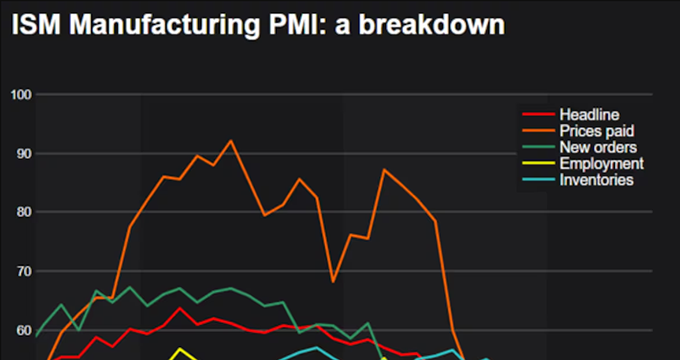
US manufacturing contracted at a moderate pace in August amid some improvement in employment, but a further decline in new orders and rise in inventory suggested factory activity could remain subdued for a while, Reuters reports.
The survey from the Institute for Supply Management (ISM) on Tuesday also showed manufacturers continuing to pay higher prices for inputs last month. It did not change expectations that the Federal Reserve will cut interest rates by 25 basis points when it kicks off its long awaited easing cycle this month.
"Input price pressures moved up modestly to the highest in three months, but they are not so high in our judgment to threaten continued slow disinflation," said Conrad DeQuadros, senior economic advisor at Brean Capital. "No bar to a September rate cut here but nothing to push the Fed to a half-point cut either."
The ISM said its manufacturing PMI rose to 47.2 last month from 46.8 in July, which was the lowest reading since November. A PMI reading below 50 indicates contraction in the manufacturing sector, which accounts for 10.3 percent of the economy.
The PMI remained below the 50 threshold for the fifth straight month, but was above the 42.5 level that the ISM said over time indicates an expansion of the overall economy.
Five manufacturing industries, including primary metals, furniture and computer and electronic products, reported growth last month. Machinery, textile mills, transportation equipment as well as electrical equipment, appliances and components were among the 12 industries reporting contraction.
Comments from respondents in the survey were mixed. Chemical products makers reported "a noticeable slowdown in business activity." Machinery manufacturers described new order intake as "sluggish at best." But miscellaneous goods manufacturing said that "new orders continue to be strong."
Primary metals manufacturers reported that order books remained "strong for now," and were "running overtime to keep pace as hiring hourly employees has been difficult."
Despite weak demand, manufacturers faced higher prices for inputs, likely reflecting soaring freight rates.
The survey's measure of prices paid by manufacturers increased to 54.0 from 52.9 in July a sign that raw materials prices increased for the eighth straight month, reversing eight consecutive months of decreases.
Factory employment contracted, though the pace slowed.
read more in our Telegram-channel https://t.me/The_International_Affairs

 9:25 28.09.2024 •
9:25 28.09.2024 •






















